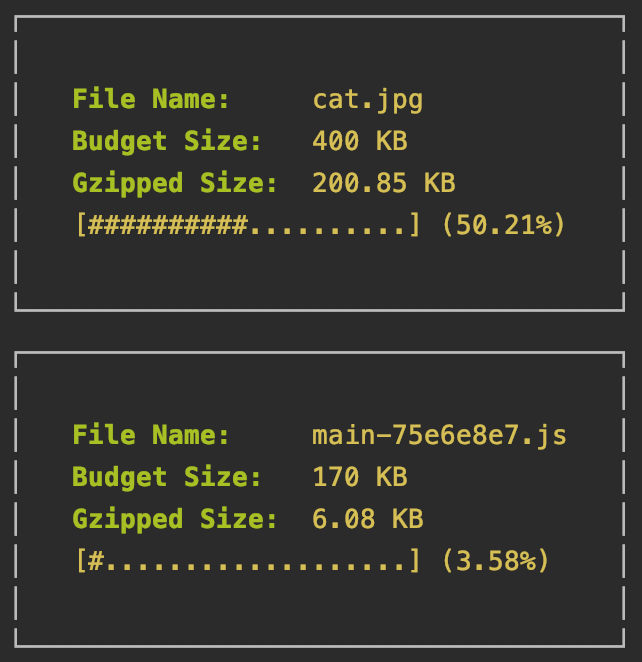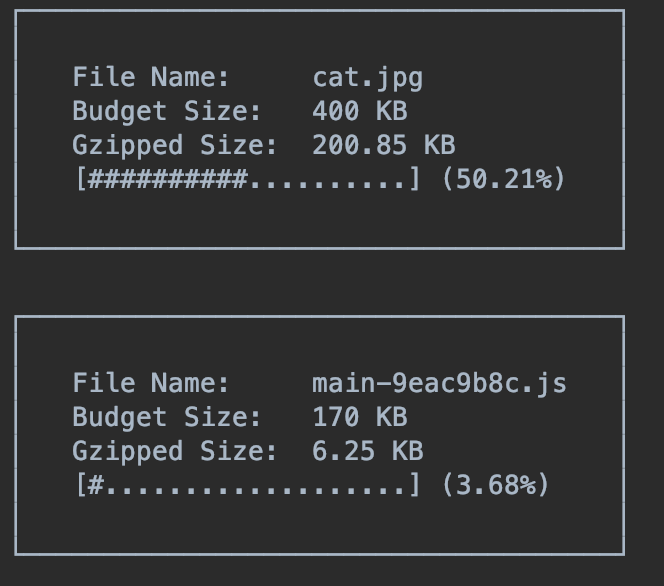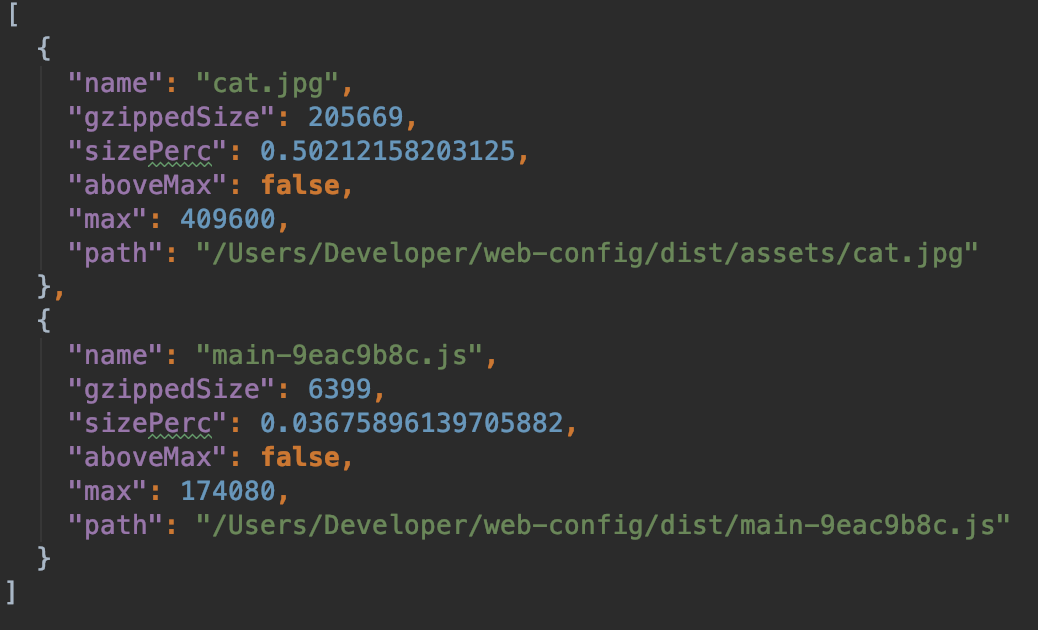A Rollup plugin that compares the sizes of the files to a specified budget.
| Option | Type | Description | Default |
|---|---|---|---|
sizes |
{[key: String / RegExp]: Number} |
A map mapping each extension or regex to a size in bytes (eg. sizes: { ".js": 1024 * 170, "cat.jpg": 1024 * 400}) | {} |
render |
(({gzippedSize, max, name}) => String) |
A function that takes the information about the budget status for a file and returns a string which is printed to the console. | defaultRender |
fileName |
String |
The name of the output file where the budget for the files is printed to. If the filename ends with .json the output will be in json. |
budget.txt |
silent |
Boolean |
Whether or not the budget for the files should be printed to the console. | true |
threshold |
Number |
The threshold of what files should be ignored. Every percentage below the threshold is ignored. | 0 |
timeout |
Number |
Timeout in ms that specifies the amount of time we wait until all of the files has been bundled after building. | 2000 |
import {budget} from "@appnest/web-config";
export default {
entry: "src/index.js"
output: {
dest: "dist/index.js"
},
plugins: [
budget({
sizes: {
".js": 1024 * 170, // Max file size in bytes (170kb)
"cat.jpg": 1024 * 400
}
})
]
};Your budget depends on your goals so it varies from app to app what the budget should be. Check out this neat tool to get an idea of what your budget could be.
The sooner you think about your performance budget, the better. This plugin is only meant to focus on the quantity-based metrics but keep in mind that there also exists other types of budgets such as rule-based metrics (eg. lighthouse) and milestone timings (eg. FCP & TTI). Below are some ideas on how you can stay inside your budget.
If you are interested in learning more you can check out this brilliant article.
Licensed under MIT.



